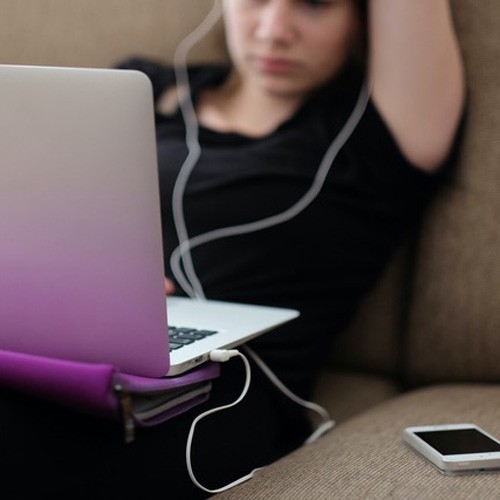Teens and tech - what do we need to know?

Content is much more relevant than time spent online.
Teens and tech - what do we need to know?
Anyone who has grappled with their new phone knows that tech evolves at an exponential rate, and the scientists who try to measure its impact on us (or on our younger generation’s wellbeing) are forever running to catch up. It is interesting then that the evidence being published does at least provide a certain level of clear and consistent messaging. For parents and teachers in particular, this is helpful.
Screen time is not particularly bad for teen health
A recent BBC article highlighted another new study to add to the growing pile of evidence that screen time is not as bad for teen wellbeing as the media might have us believe. The study results seem to be reasonably reassuring for those of us who live or work with young people or worry about teen mental health. The findings state that there remains little association between teenager screen use and mental health problems.
The same University of Oxford team famously said that screen time was ‘no worse for teen mental health than eating more potatoes’ in a 2019 study! This new study essentially confirms that the evidence has not changed. Still, the debate rages on…
So can we relax about tech?
In short, no.
The evidence seems to be that how much time teens spend on tech/ screens is much less important than what they are looking at. For those of us who fret constantly about the number of hours our offspring spend in their rooms or on the sofa glued to TikTok or FIFA this is relatively good news. The hours are not really the issue.
However, we can’t relax too much, because we still need to check in on what they are looking at, how it affects them, and know when to worry, intervene or suggest a break. Content is therefore much more relevant than time spent online.
What do we mean by ‘content’?
Content itself can be broken down into categories. For ease of discussion the media tends to worry about ‘social media’ and less about ‘everything else’. Sadly, it’s not that simple, of course. Social media is not ‘good’ or ‘bad’, and ‘everything else’ can cover a range of content from family photos, gaming, gambling, all the way through to porn. As parents or teachers, we therefore need to worry less about screen time, and more about content, whether social media or not!
If you need more detailed analysis and ideas for supporting your teen and understanding different types of content risk, there are now multiple books written about the impact of phones, tech, screens and social media on our young adults, and of course endless articles and blogs (I will declare an interest here). They are well worth a look.
Using screen time for good is possible
Plenty of screen time can be spent positively, with friends or family members; learning TikTok dances, family film night, gaming against each other, to name just a few. On the downside, spending hours scrolling through Instagram can be negative for our wellbeing, and studies show that mood is better if we scroll AND engage or comment, compared with if we just scroll. This may be a useful tip to pass on to any young people you know!
Top Tips - Balance is key!
With so much debate and controversy about screen time continuing around us it can be helpful to have a few top tips to live by, whilst we await more definitive answers.
Try some of these.
- Balance is key- screen time should be finely balanced with sport, time outdoors, and time in person with friends and family.
- Keep screen time healthy by not snacking whilst on a screen.
- Reduce risk of attention problems (and decrease distractions) by encouraging use of only one screen at a time where possible.
- Ensure sleep is prioritised and not sacrificed to screen time (no screens for an hour before bed, and none in the bedroom overnight).
- Put boundaries around ‘screen free’ family time, for example at mealtimes, which you all agree together- try not to impose rules.
- Consider ‘binge’ days (Fridays?) and ‘screen free’ days (Sundays?) to allow flexibility for everyone.
Review content separately to screen time - consider the impact of different types of content on wellbeing, and whether they encourage; socialising online, sharing of positive experiences, political awareness, positive contributions to society, or whether they make you feel irritable, angry, sad, or anxious and thus should be reduced. We could probably all do with reflecting on this more!
In a fast-moving world it can feel stressful knowing how best to support and advise our young adults about a topic we may feel poorly equipped to judge, but talking to them about it is a vital part of that; asking them questions, taking an interest, and agreeing boundaries together will help both sides to better understand the positives and negatives of screen time and content on wellbeing. Good luck!
Dominique Thompson
GP and co-author of How to Grow a Grown Up (PenguinRandomHouse)






